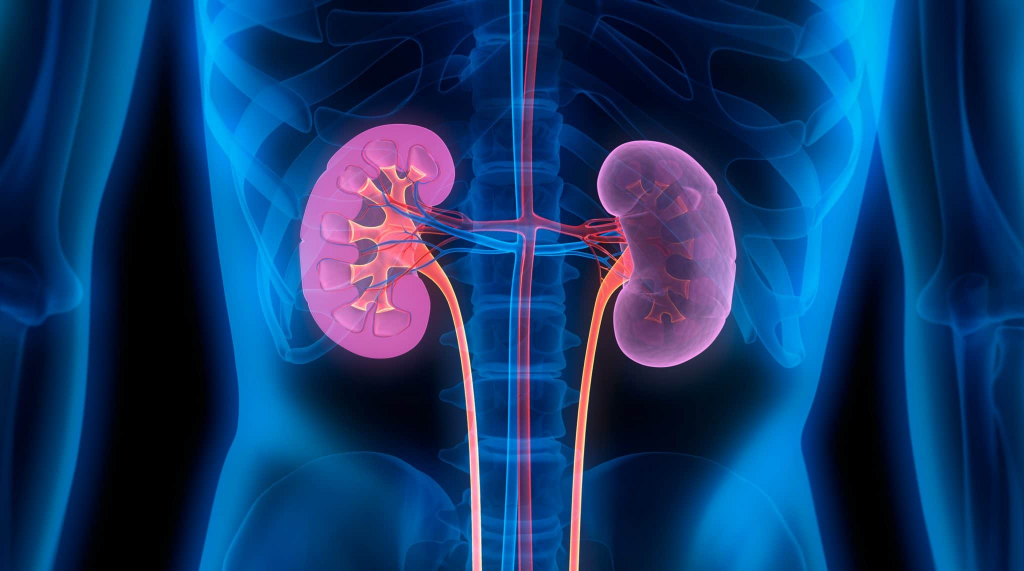The relationship between kidney function and hearing loss has long been recognized. Reduced kidney function is independently associated with hearing loss. Testing for hearing should be included in the integrated management of patients with chronic kidney disease. When kidneys are damaged, the kidneys’ ability to filter waste from the blood is reduced; this can lead to fluid retention in the body (edema) or to kidney failure itself and since the kidneys are responsible for helping to filter waste out of our bodies, those complications can be messy – even dangerous.

When it comes to kidney disease and its potential impact on various parts of the body, including the ears, the consequences can be far-reaching. Kidney disease has the potential to cause changes in blood pressure, affecting blood flow through the inner ear and leading to symptoms such as tinnitus, dizziness, and even vertigo. These sensations can be not only alarming but also debilitating. Seeking medical advice on this matter would reveal that the kidneys share similarities with the cochlea’s stria vascularis in terms of physiology, ultrastructure, and antigens. This implies that kidney disease has the potential to damage the delicate hair cells inside the ear responsible for converting sound vibrations into nerve impulses sent to the brain. Hence, it becomes crucial to pay attention to overall health and seek timely medical assistance. In urgent situations or for routine check-ups, clinics like Auburndale urgent care center can play a vital role in identifying diseases faster and ensuring proper management for a healthier future. By entrusting your well-being to trusted healthcare professionals, you can proactively safeguard your health and well-being, allowing you to live life to the fullest.
Also, Kidney disease can also cause changes in blood pressure which can affect blood flow through the inner ear causing tinnitus and/or dizziness or even lead to vertigo – a spinning sensation that can be frightening and even debilitating at times! If you asked a medical professional about the kidneys and the ears, they would tell you that “the kidneys share physiologic, ultrastructural and antigenic similarities with the stria vascularis of the cochlea.” So what does that mean? It means that when kidney disease occurs there is the potential for damage to the tiny hair cells inside the ear that help us hear by converting sound vibrations into nerve impulses which are then sent to the brain.
Alport syndrome is a disease that damages the tiny blood vessels in your kidneys. It can lead to kidney disease and kidney failure. It can also cause hearing loss and problems within the eyes (retinopathy), which may lead to blindness if left untreated or poorly treated for a long time. Alport syndrome is an inherited disease, which means it is passed down through families. The cause of this disease is unknown but researchers believe it may be caused by a mutation in the COL4A5 gene located on chromosome Xq22-23 on the X chromosomes. With all types of Alport syndrome, the kidneys are affected.
They become scarred from tiny blood vessel damage that causes them to leak protein into the urine and blood plasma resulting in kidney damage and failure over time if not properly managed and treated early with medications and other options. These options can slow the progression of the disease and help control symptoms like high blood pressure in some patients; however they do not cure it or prevent it from getting worse in the future even with treatment and proper management of the disease. Many people with Alport syndrome also have hearing problems and abnormalities with their eyes.
Kidney function declines slowly over years to decades as the small vessels of the glomeruli are damaged and the filtering units fail to work properly and eventually the kidney function becomes so poor that the GFR falls below normal levels for age due to scarring of these structures and loss of functioning nephrons leading to end-stage renal disease requiring dialysis or a renal-kidney transplant (learn about renal transplants here) for survival in most cases as the body can no longer filter the blood effectively on its own without these organs working normally to filter blood and remove waste products from the blood and body tissues.
Your healthcare professional will have to watch your signs, symptoms, and look at your family history to know if you have Alport syndrome. Blood tests and other lab tests may be done to help diagnose this condition and determine its severity and its progression to determine treatment options to help manage and control the symptoms and slow the progress of the disease and complications of the condition as they occur to prevent complications from becoming worse and prevent further damage to the affected organ systems of the body if possible to slow progression of this disorder as much as possible for as long as possible depending on the severity of each case and how it responds to treatment and how well the patient manages their condition overall.
